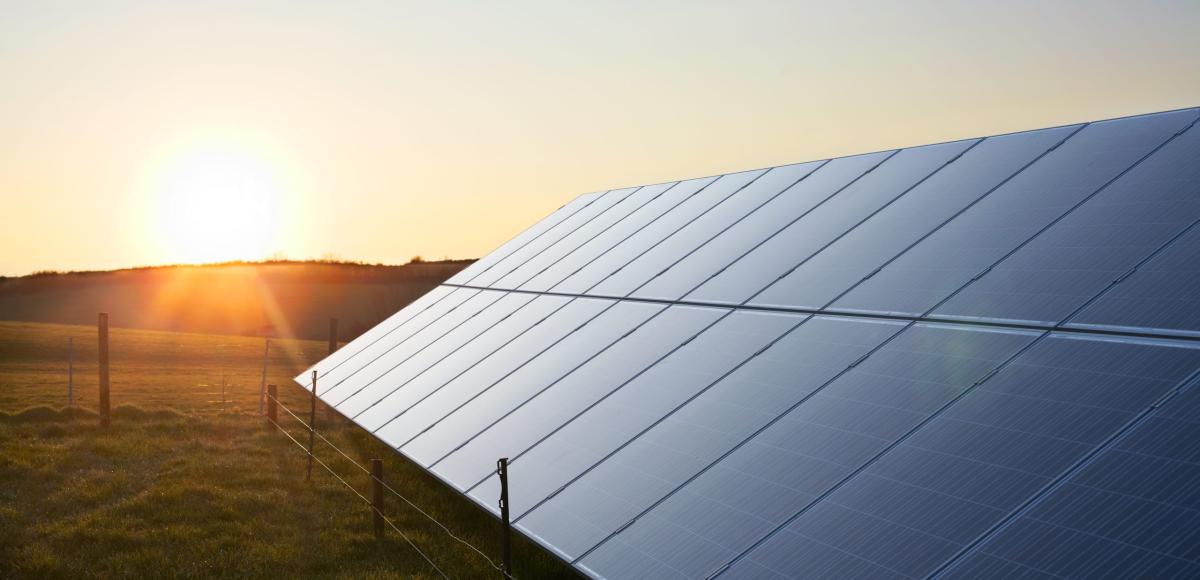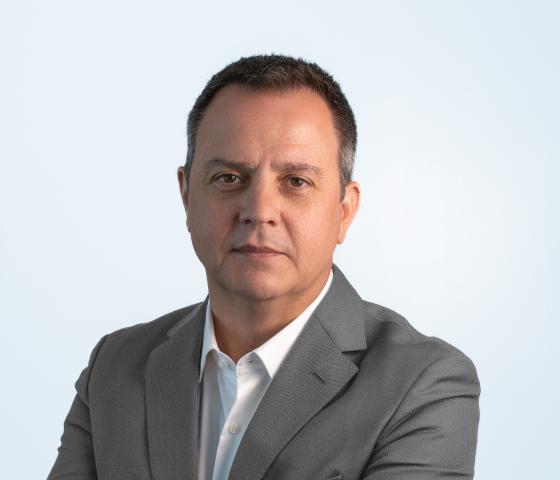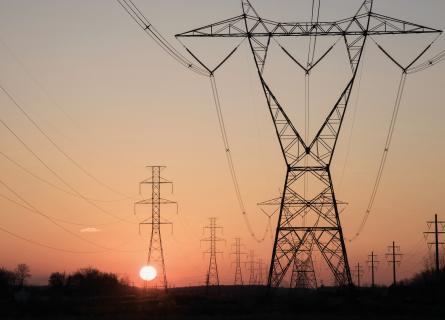
Towards a sustainable future
With plans to develop one of South East Asia’s largest solar-plus-storage facilities and expand the Philippines’ only commercial natural gas field to date, Guillaume Lucci, President and CEO of Prime Infrastructure, currently has many exciting topics to talk about.
You are developing four utility-scale energy projects and recently acquired a licence extension for the only commercial natural gas plant in the Philippines: If you have ever been bored, now cannot be one of those times, can it?
Guillaume Lucci: You can say as much! While I am never bored, it is certainly a very active and engaging time for Prime Infra. Six years ago, we could see a massive gap in critical infrastructure, not only at home but also around the world. Emerging markets, the engine of our global economy, are suffering from an endemic gap in infrastructure that will undoubtedly slow down economic growth. Quality infrastructure development and investments can transform a country like the Philippines in terms of security (energy, water, etc.), stability, inclusive economic growth, and improving the quality of life across the board.
I’ve seen first hand how infrastructure promotes economic development, having worked most of my career in emerging markets and more recently for over half a decade as head of the Global Engineering division at one of the world’s biggest port operators, ICTSI. And so, we decided to build a company that can deliver essential services through critical infrastructure. Six years later, Prime Infra has now become a leading and fast-growing infrastructure company that builds dams and provides reliable water services, develops renewable energy projects for energy security and reliability, and puts up modern materials recovery facilities for much-needed proper waste management, all of which are pursued with underlying decarbonisation strategies. The more essential or critical the services our projects extend are, the more resilient and enduring our business model will be.
We will continue to be relentless in identifying market needs and gaps and in pursuing opportunities not just for growth but, true to our commitment, also to build better lives and more resilient economies. We never stop—never stop moving, never stop expanding, and never stop looking for growth opportunities. It is still a long way to go and as our track record shows, we do not have time to be bored.
As a utility provider, Prime Infra lives the balance between the need for energy supply and decarbonisation on a daily basis. How does Prime Infra solve this balancing act?
All our projects have underlying decarbonisation strategies that are in line with our group-wide ESG approach. Especially regarding our energy assets, we intend to cater to the demand for energy while supporting the transition to a low-carbon economy. Addressing decarbonisation objectives while meeting the energy needs of fast-growing economies is challenging, particularly in terms of base load.
We therefore took a different approach to service the base, mid-merit and peaking needs. In the case of mid-merit, our Terra Solar project, eyed to be one of the largest hybrid projects in South East Asia, has a unique feature of integrating a large ESS with solar power generation at scale in order to ensure offtake requirements will be satisfied on a daily basis. It will also leverage on the “must” dispatch status of solar energy over conventional energy sources, such as coal, and is expected to power over 2.1 million households and to displace approximately 2.8 million tonnes of coal per year. This feature allows a fully renewable utility scale mid-merit power supply that can be handled by our transmission grid.
Similarly, one of our pumped storages is designed to use energy that would have otherwise been wasted at night in order to reproduce it under the form of renewable energy during the day. It recycles excess power to service mid-merit demand. Our energy assets allow our offtakers and partners to adapt to sustainable energy initiatives and to transition to cleaner energy resources. On the peaking side, while we are developing a few solar plants, we are really turning our attention to pumped storage projects to support the needs to the grid as the supply of renewable variable generation increases. Without proper ancillary services, there is really no way our existing grid will be able to cope with wind, solar and other seasonal hydro power projects.

When it comes to base load, we turned our attention to the only viable transition fuel the world currently has, natural gas. That is what drove our acquisition of the Malampaya gas-to-power asset. Prime Infra, through our subsidiary Prime Energy, took over Malampaya because we believe that natural gas is the only transition fuel in the near-term, reducing the need for baseload fossil fuels and allowing for the phased decommissioning of our coal plants.
Of course, in the long term, we are bullish on small modular reactors (SMRs) among other technologies. We feel that SMRs will be the only reliable way to dispatch low emission base load. Over time, baskets of renewable projects properly combined with utility scale storage such as pumped storage will also address this need, but the overall system still needs to be upgraded to be able to cope with a combination of renewable energy to service base load demand.
With their urgent need for energy, the Philippines, where growth in power demand has outpaced new capacity, is faced with a real challenge. How do you see Prime Infra’s role in meeting this challenge?
As the government's partner of choice, Prime Infra invests in and develops critical infrastructure aligned with the country’s urgent needs. This includes ensuring both energy security and reliability because of the ever-increasing demand for power. Meeting this demand requires innovative solutions and I think this is where Prime Infra comes in. As our track record shows, Prime Infra’s energy projects are complex by nature; they are very unique and game changing. We acted in the same way when the country faced a major water shortage and stepped up to supply bulk water, currently building a dam that will be able to supply over 700 million litres per day of water starting in 2025.
Prime Infra, as you know, has taken over the operations of the Malampaya gas field, a critical energy asset in the Philippines which has been operational since 2001. Now, the challenge is to extend the production life of the project through gas exploration. Prime Infra is also looking at other tie-back opportunities to capitalise on the natural gas processing and transportation infrastructure of the Malampaya asset.
In the renewables side, Prime Infra will be developing, together with our partner, the Terra Solar power plant that is unique both in the Philippines and on a global scale, integrating solar power generation of 2,500 to 3,500MW with an energy storage system of 4,000MWh (min). Upon completion, the Terra Solar project will be one of the biggest solar hybrid projects in the world. We will also be developing two pumped storage (hydropower) projects, again innovative projects that are game-changing in scale and energy efficiency. These PS plants will recycle power that is underutilised at night and reproduce it under the form of RE during peak demand.
Prime Infra responds quickly to market needs. As I’ve said, we get things done. That is the track record of the Razon Group when it comes to project delivery in complex situations and environments.
When we think about the effects of climate change, they are perhaps even more directly felt by an island nation like the Philippines than on the mainland. What are the current impacts of climate change on Prime Infra's business, how do you face them now and what are your plans for the future?
Definitely, climate change poses significant risks to an island nation like the Philippines, hence the need to integrate adaptation and mitigation measures into the development of critical infrastructure. Its impact is immediately felt in the fields of agriculture, power, water, among others.
For Prime Infra, our water infrastructure projects are more likely to experience the physical effects of climate change i.e. extreme e weather events and reliability of water sources, but climate change is a phenomenon that we have accounted for by ensuring that our infrastructure assets—and our businesses—are resilient. Take note that Prime Infra’s first water project – the Wawa Bulk Water Supply Project – was precisely devised to avoid a repetition of the 2019 water crisis. The said project also comprises a reservoir design that considers the impact of climate change with regards to the availability of raw water, including and especially during the hot months of summer.
Furthermore, we are also undertaking reforestation activities around the site. Combining water projects with extensive reforestation work on the watershed is critical to ensure the long-term sustainability of the project.
Our subsidiary Manila Water, which serves 7.3 million consumers, is eyeing new medium- and long-term water sources and intensifying watershed rehabilitation and reforestation work, among others, to ensure that our customer's demand for safe and reliable water supply is met. Manila Water is also actually the first company in the Philippines to have a Climate Change Policy predating even the national climate change policy. While there can be no guaranteed assurance that we can eliminate the negative impacts of climate change, we have put the necessary measures in place to ensure the continued project development and operations.
All the modelling takes climate risks into account, and this is very important for our businesses, because we enter into long term projects and offtake agreements. This approach also applies to our sustainable energy (natural gas, solar and hydropower) and waste management projects. In the case of waste management, our existing facility, and the upcoming ones currently under construction will capture methane emissions, recycle and treat organics. As you know, capturing methane plays a critical role in slowing down climate change. The risks are so diverse for these sectors, but so are the actions that can be implemented to address these risks, as well as reduce vulnerability to the impact and consequences of climate change.
At AFRY, our vision is “Making Future”. Do you have any specific dreams about your own impact on a better future for the next generations?
There is always uncertainty when talking about the future, but I like to consider it from a perspective of seizing opportunities – the opportunity to develop strategies that would address the market's needs and gaps, and the opportunity to lift communities up. Our goal is to build today’s critical infrastructure for a sustainable future. All our investments are significantly influenced by our vision and as such, you will see us pushing in that direction, continuously developing infrastructure that enables our stakeholders to achieve decarbonisation goals, multiply social benefits, and promote inclusive economic growth.
The sectors we operate in provide essential services— access to clean water, reliable and sustainable energy, and proper waste management. If we can help improve the quality of life and create a more sustainable and resilient environment, then I think we will make an incredible and lasting impact to benefit future generations.



